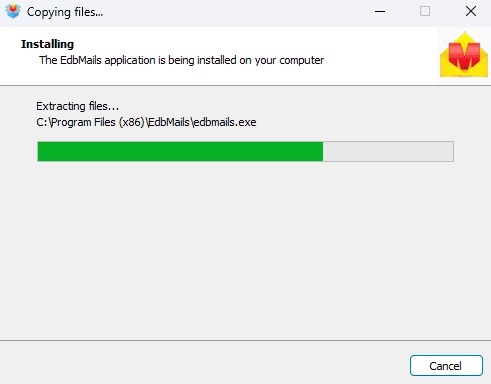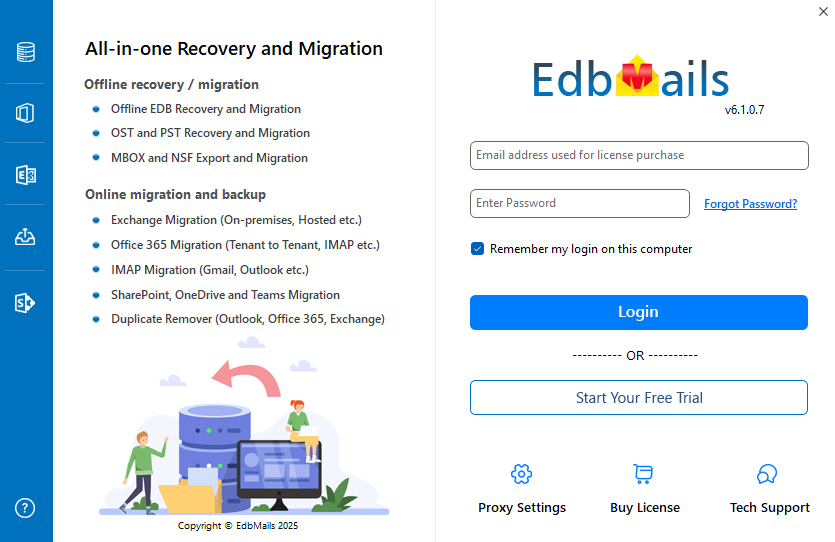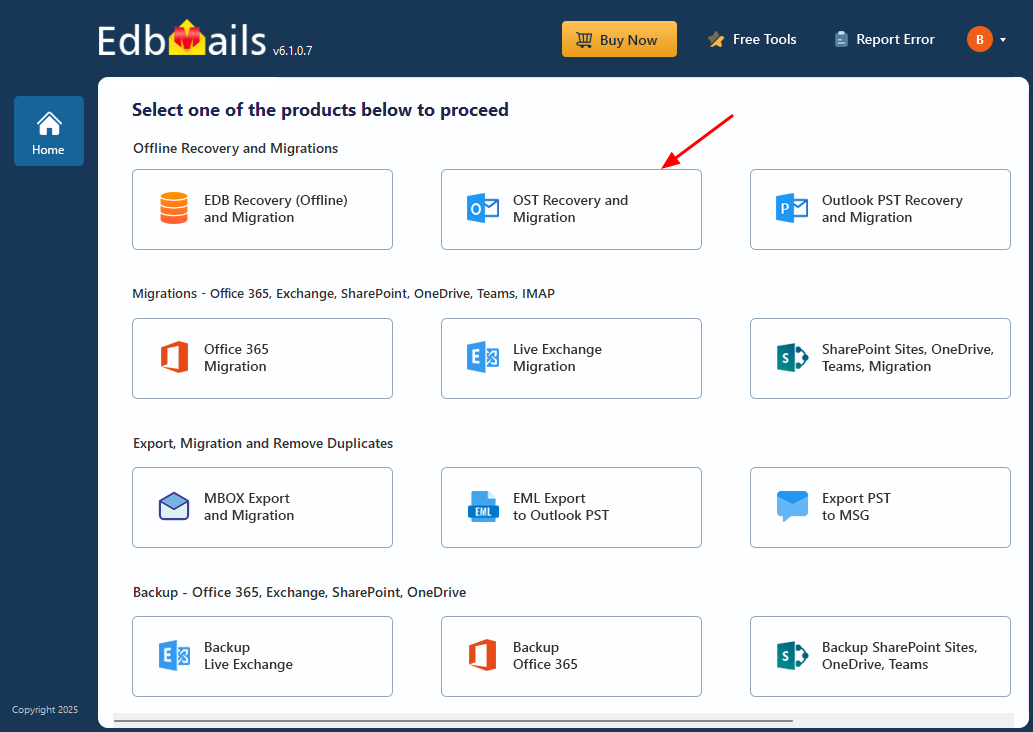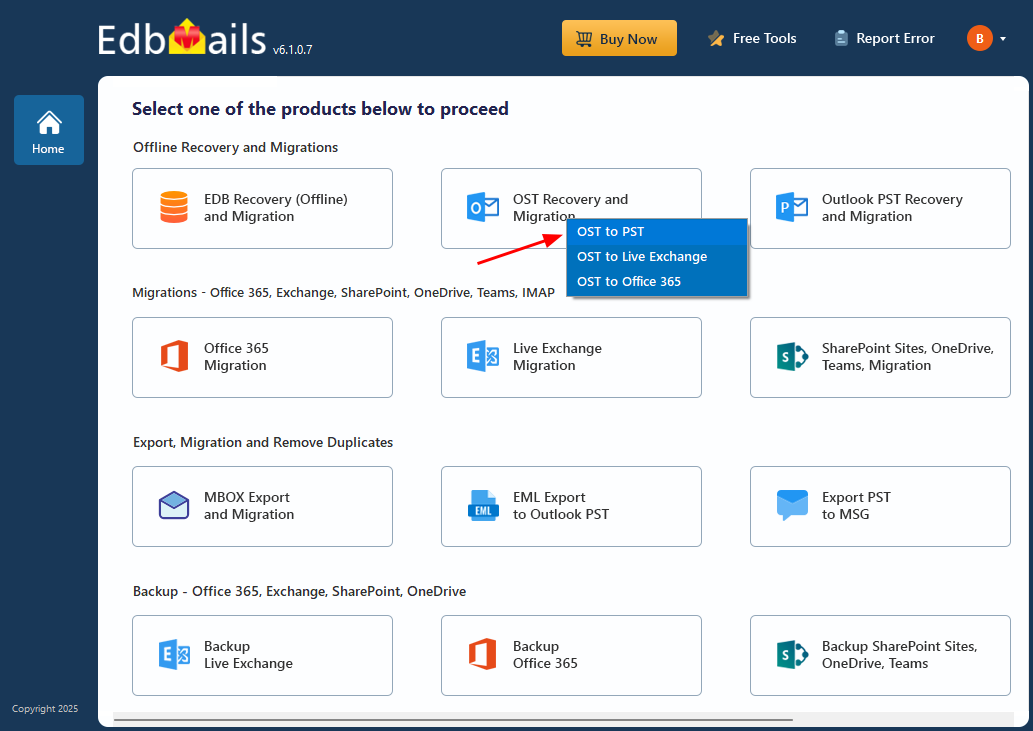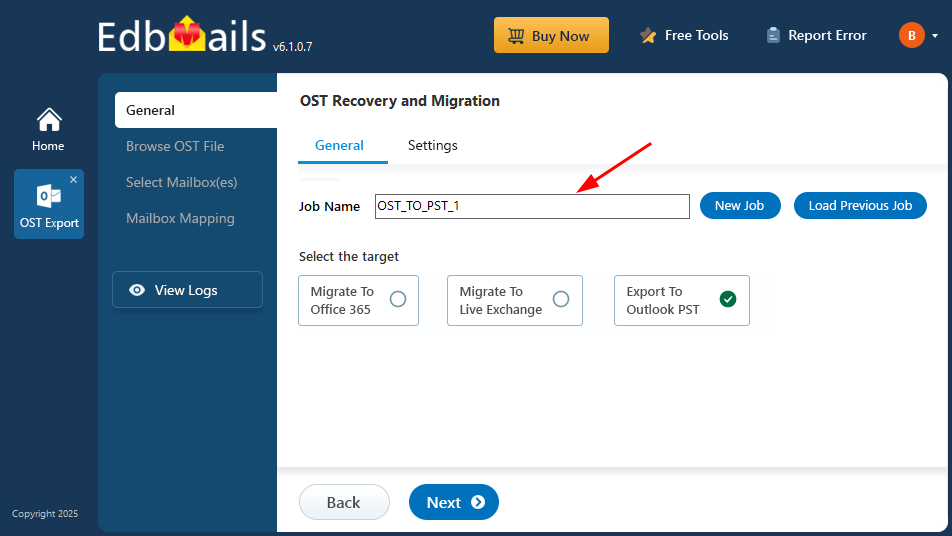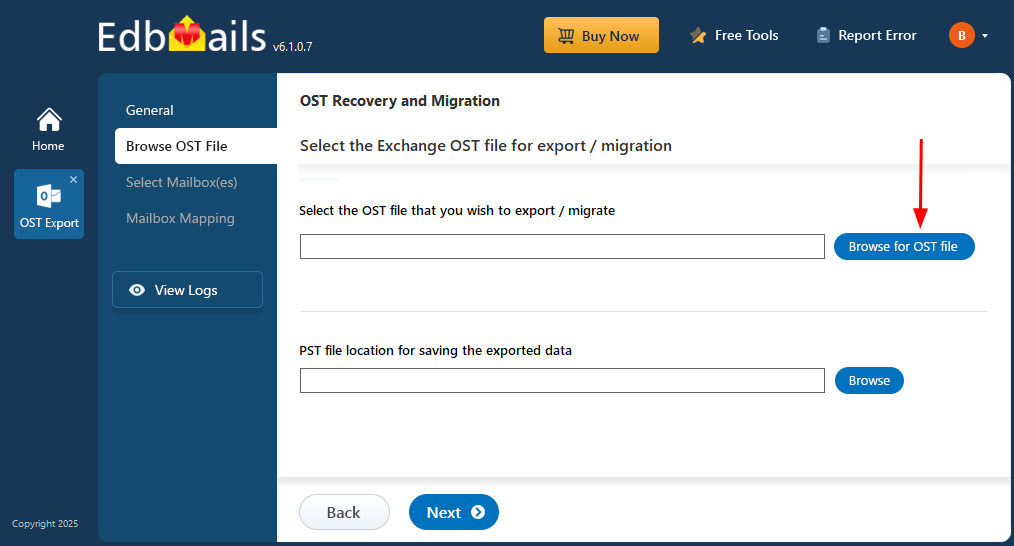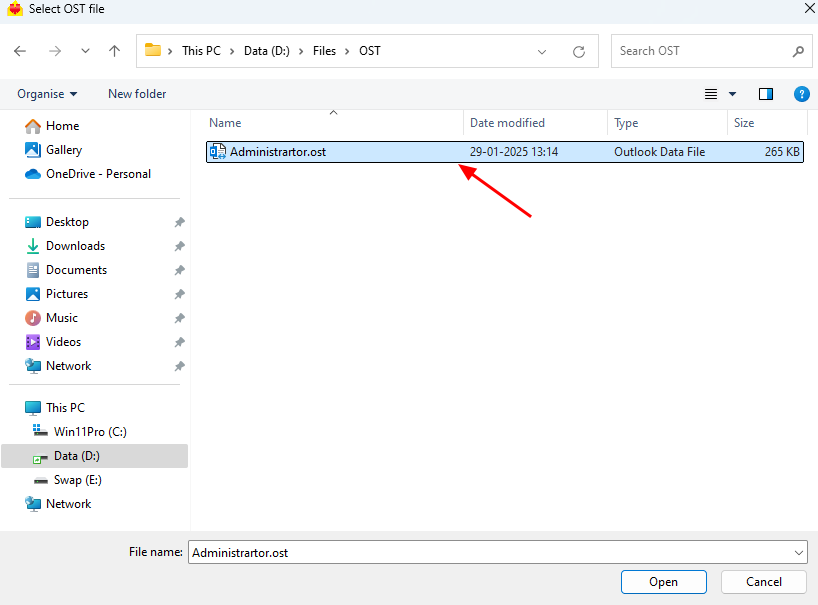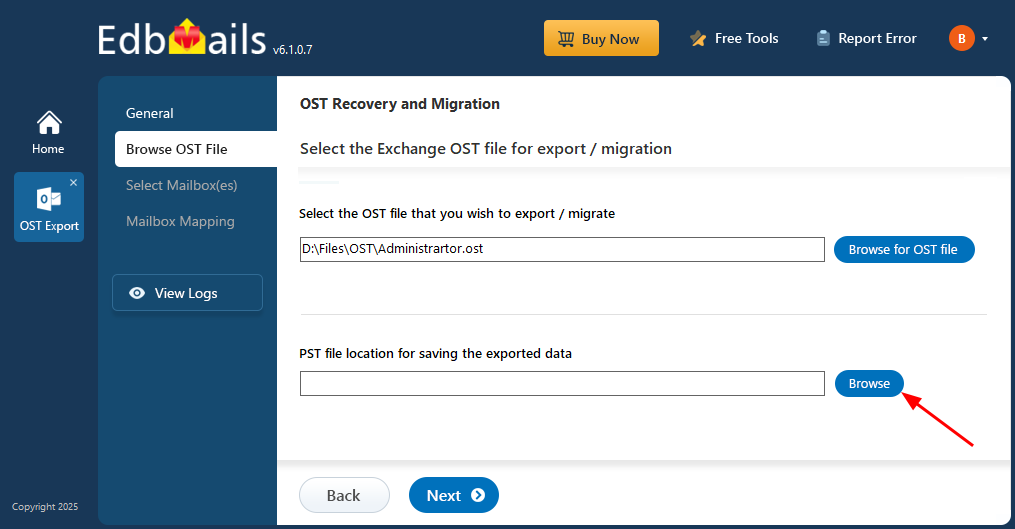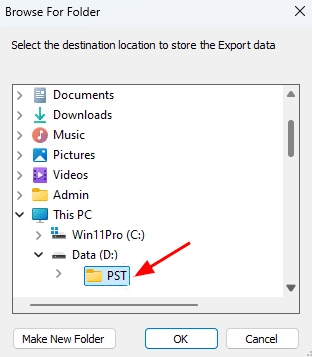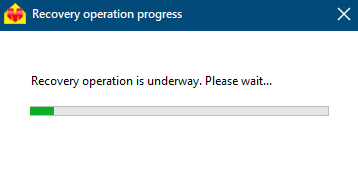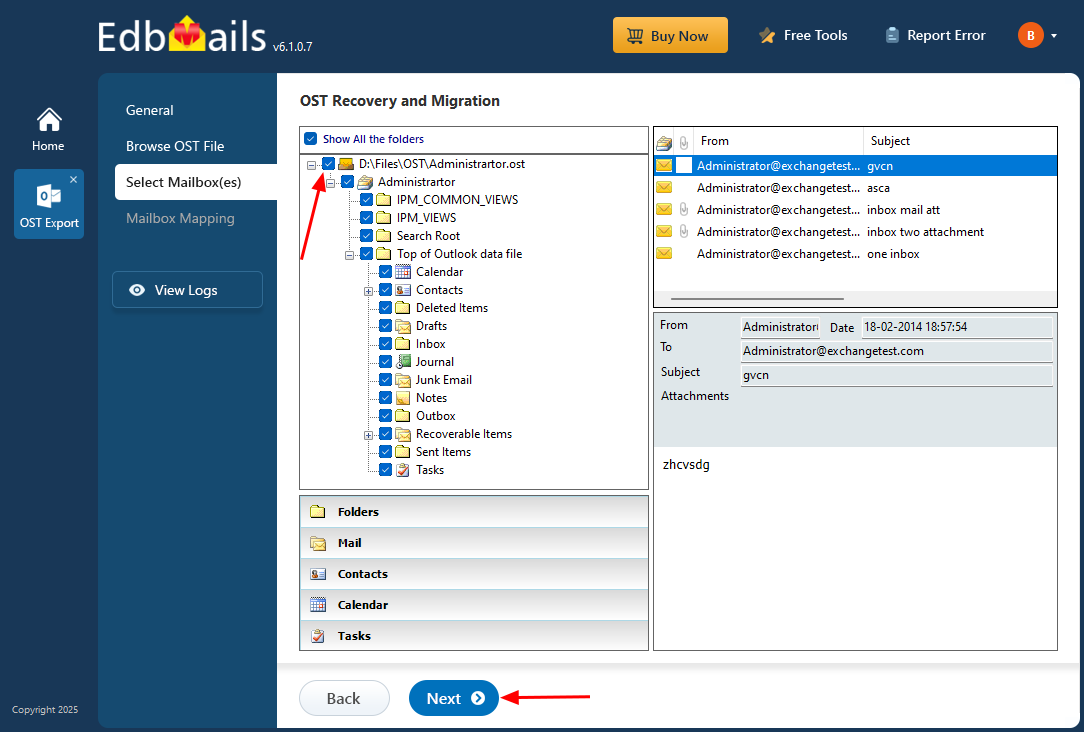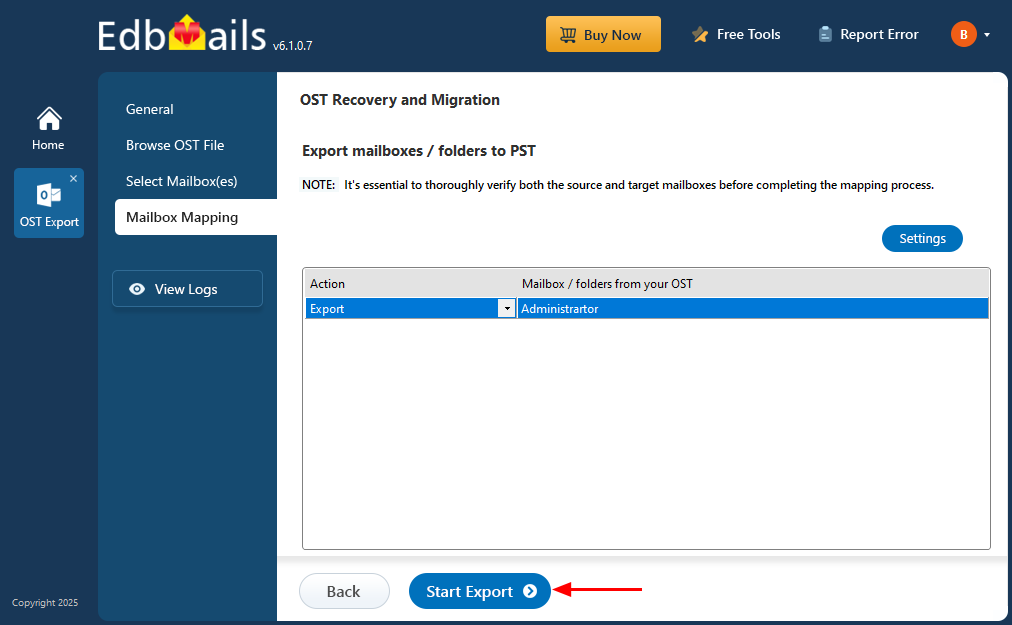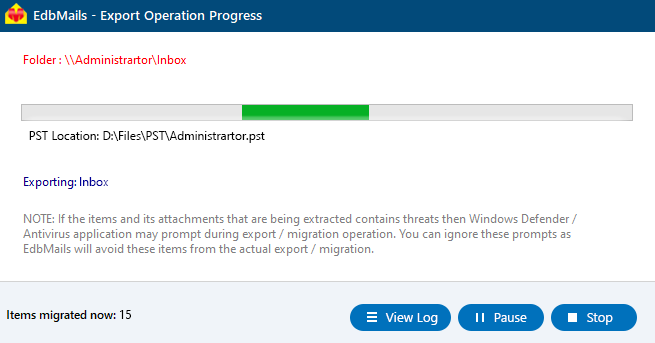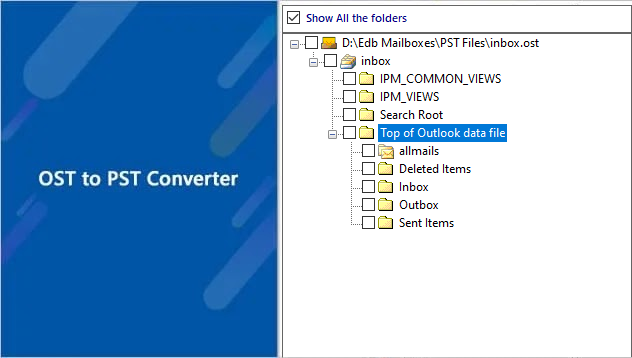Repair and Convert Orphaned OST Files to PST
An OST (Offline Storage Table) file is a locally stored copy of an Outlook mailbox created when Outlook connects to an Exchange server. It lets you work with emails, calendars, contacts, and other mailbox data even without an active internet connection. However, when the mailbox is removed from the server or the Exchange account is no longer available, the OST file loses its server connection and becomes orphaned, making it unusable in Outlook.
Once orphaned, the file cannot be reconnected or opened normally in Outlook, and users may encounter errors or data that fails to load. To restore access to the mailbox data, the orphaned OST file must first be repaired if damaged and then converted into a PST (Personal Storage Table) file. Since PST files are fully supported by Outlook, this conversion allows you to import the data and access your recovered mailbox items without issues.
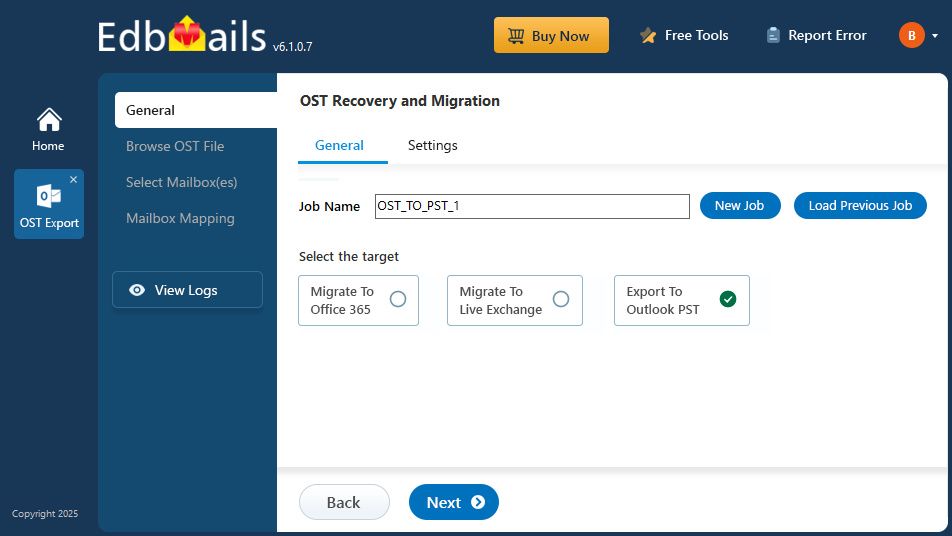
This is where EdbMails OST to PST Converter plays a key role. It is built to recover data from orphaned or corrupted OST files, resolve file-level issues, and convert mailbox content into PST format without depending on the original Exchange server or Outlook profile. This makes it a dependable option when standard recovery methods are no longer effective.
In the following step-by-step guide, you’ll learn how to use EdbMails to repair and convert an orphaned OST file, helping you regain access to your Outlook data smoothly and minimize workflow interruptions.
Common Reasons that make a Microsoft Exchange OST File Orphaned
- Exchange Server Crash: When Outlook fails to synchronize the data with the Exchange Server due to a server crash or permanent shutdown, the associated OST file loses its connection to the mailbox and becomes orphaned. EdbMails recovers mailbox data directly from the orphaned OST file and converts it to PST without requiring the Exchange server.
- Exchange Storage Failures: Bad sectors on the server’s storage disk can lead to incorrect data reads and database corruption. When the Exchange database becomes unavailable, the local OST file is left orphaned. EdbMails scans and extracts data from orphaned OST files even when the Exchange database is corrupted or inaccessible.
- Power Failures: Unexpected power outages or abnormal server shutdowns while Exchange is accessing the database can damage mailbox data, resulting in an orphaned OST file on the client system. EdbMails repairs file-level issues and converts the affected OST file to PST, restoring access to mailbox data.
- Exchange Cache Controller Failure: If the caching controller used by the Exchange Server fails, cached mailbox data may be lost and the database is corrupted, causing the OST file to become orphaned. EdbMails bypasses cache dependencies and retrieves mailbox data directly from the OST file.
- Mailbox Deletion: When a mailbox is deleted, disabled, or access is denied by an administrator, Outlook can no longer sync with the server, leaving the OST file orphaned. EdbMails allows you to recover and export data from the orphaned OST file without needing mailbox access or server credentials.
- Virus Infection on Exchange Databases: Virus infections can damage Exchange databases and make them unusable, which in turn causes associated OST files to become orphaned. EdbMails safely extracts mailbox data from orphaned OST files affected by server-side database issues.
- Accidental Deletion: Accidental deletion of Exchange databases, disk partitioning, formatting the operating system, or reinstalling the server can make Exchange unavailable and orphan the local OST files. EdbMails recovers data from orphaned OST files independently of the Exchange environment and exports it to accessible formats like PST.
How to Avoid Orphaning of OST Files
OST files can become orphaned due to Exchange server failures, corruption, or unexpected shutdowns. Taking a few preventive measures can help maintain server stability and protect Outlook data. Below are some essential guidelines to avoid OST file orphaning:
- Using Reliable Server Hardware: OST files often become orphaned due to corruption in Exchange server databases. Using dependable hardware components helps reduce the risk of server-related failures.
- Protecting against Power Failures: Installing a UPS ensures uninterrupted power supply during outages, preventing sudden server shutdowns that can damage Exchange databases.
- Implementing Antivirus Protection: Deploy trusted antivirus and anti-malware solutions to protect the Exchange server from infections that may corrupt mailbox databases.
- Performing Regular Mailbox Backups: Frequently backing up Outlook mailbox data ensures your information remains safe and recoverable in the event of server crashes or unexpected issues.
Even with preventive measures, issues can still occur. In such cases, EdbMails OST to PST Converter acts as a reliable solution by recovering data from orphaned OST files and restoring mailbox access without requiring the Exchange server or original Outlook profile.
How to recover and convert orphaned OST files to PST?
If the Outlook data file (.ost) is orphaned, you must use a converter tool such as EdbMails OST to PST converter. EdbMails can open corrupted, orphaned, inaccessible OST files and allows you to export the emails and mail items to PST format.
Steps to Export orphaned OST to PST
Step 1: Download and install EdbMails OST to PST converter tool
- Download and install the EdbMails application on any Windows-based computer.
- Open the EdbMails application
- Enter your email address and password, then click ‘Login’. If you don’t have an account, click ‘Start Your Free Trial’ to continue using the trial version.Note: The Free Trial version lets you explore the software features and export up to 30 items from each and every folder. To unlock full functionality, you need to purchase a valid license from the EdbMails website.
Click here to purchase the license from the EdbMails website.
After completing the purchase, close and relaunch the EdbMails application, then login using the same email address and password used during the purchase to activate your license.
- Select ‘OST Recovery and Migration’.
- Select ‘OST to PST’.
- You can retain the default job name or click the ‘New Job’ button to change the job name.
Step 2: Select the Orphaned Outlook Offline Data File
- Click ‘Browse for OST file'.
- Select the offline OST file from your local drive, then click the ‘Next’ button to continue. You can also share the OST file on a network with read and write permissions assigned.
- Click ‘Browse’.
- Select the location where you want to save the exported PST files and ensure there is enough free disk space for storage.
- EdbMails scans the offline OST file and recovers mailbox data, even when the file is damaged or corrupted. During the process, the tool analyzes the file structure and contents to extract emails and other mailbox items. The time required depends on the file size and the level of corruption, so wait until the scan completes to ensure full recovery.
- After the recovery process is completed, the OST file data is displayed in the application interface with its full folder and subfolder hierarchy. You can expand any folder or subfolder to view its contents. When you select a folder, such as Emails, Contacts, Notes, Tasks, or Calendar, the application lists all the items within it and displays a detailed preview of the selected content on the right side of the interface. EdbMails OST to PST Converter allows you to open an OST file without Outlook.
Step 3: Preview and select the mailbox
- Select the entire OST file or the required folders / subfolders and click the ‘Next’ button.
- EdbMails allows you to apply filters to customize your export process. For example, you can use date filters to export items within a specific date range. To do this, go to the ‘General’ tab on the left side and then click the ‘Settings’ tab at the top right.
Click here to learn more about setting date filters for OST to PST conversion.
Step 4: Export the rebuilt OST file to PST
- EdbMails OST to PST converter ensures fast and accurate conversion of offline OST files to PST format. Review the selected mailboxes and folders for the export operation, ensure the ‘Action’ is set to ‘Export’, and then click the ‘Start Export’ button to begin the export process.
- The export process has started, and you can track its progress through the status bar. The interface shows the mailbox and folder being exported, the destination PST file location, and the count of items successfully exported. When the export is complete, EdbMails will display a message confirming that the operation has finished.

